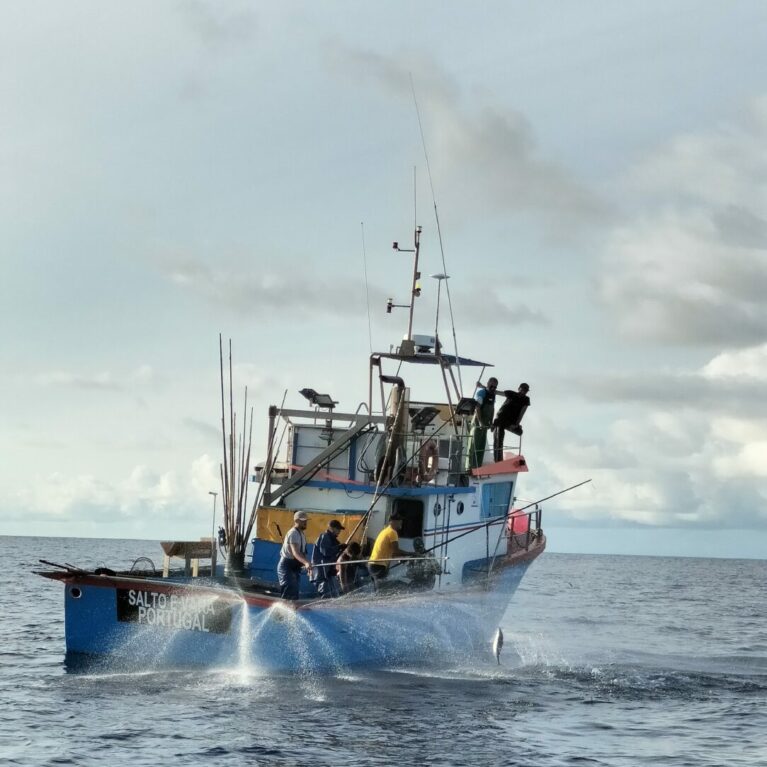The sea’s sheepdogs: tuna and whale shark feeding associations in the Azores
In the Azores, slow-moving whale sharks are often found feeding on frenzied bait fish in association with tuna. The speedy tuna are nimble enough to ‘herd’ the bait fish and the whale sharks rely on this service. In a world where whale shark numbers are declining, places where healthy populations can thrive are critical. But fishers in the Azores also prefer to target these large schools of tuna, putting them in competition with the whale sharks. Using a combination of historical and biologging data, Jorge hopes to understand more about these whale shark and tuna associations and to better inform the conservation measures needed to protect them.
I was born on the small island of Faial in the Azores archipelago, Portugal. Growing up just steps from the ocean, I have been connected to the water for as long as I can remember. My journey as a naturalist and marine ecologist probably began at the age of five or six when I first used my brother’s snorkel. Throughout my childhood, I spent as much time as possible in the ocean, sailing, free-diving, fishing, swimming, playing, observing and learning.
After high school, I moved to mainland Portugal to study marine biology and fisheries at the University...
?
The main goal of this project is to understand the ecological relevance of whale shark–tuna feeding associations and the potential impact of their overlap with fisheries.
The large and slow whale sharks rely on the fast tuna to help them herd the small fish they feed on. In turn, the local pole-and-line fishers prefer to fish these aggregations because fishing yields are better. Although pole-and-line fishing is highly selective, the impact of disturbing these feeding aggregations is unclear.
Overexploitation and habitat loss, exacerbated by climate change, are causing a global decrease in marine biodiversity. Whale shark populations have been decreasing globally for reasons that include commercial-scale harvesting, pollution and collisions with boats. Yet the seasonal occurrence of whale sharks in the Azores has increased significantly in warmer summers over the past 14 years. Interestingly, the whale sharks are normally found in association with schools of tuna. Fishers target these aggregations because their catches are better than when they focus on free-swimming schools. These whale shark aggregations are unique because they comprise mature individuals that forage almost exclusively on small fish, although they depend on the tuna to herd the fish into bait balls for them. However, the presence of humans or boats often disrupts the bait balls and the feeding behaviour of both the whale sharks and the tuna. Given the apparent importance of the whale shark–tuna associations, it is reasonable to assume that the removal of tuna and the disruption of the associations, even if temporarily, may impact the whale sharks’ and tuna’s energy budget, with potential long-term impact on the fitness of both species.
We will use a multidisciplinary approach, using both state-of-the-art biologging technology and the analysis of historical data to investigate trophic overlap and the fidelity and dynamics of the whale shark–tuna associations under human pressure.
- To shed light on the impacts of fishing and other human activities on whale shark–tuna feeding associations.
- To contribute relevant information in order to support the ecosystem-based management of fisheries and other activities.
- To encourage smart decision-making for the conservation of the globally Endangered whale shark.


